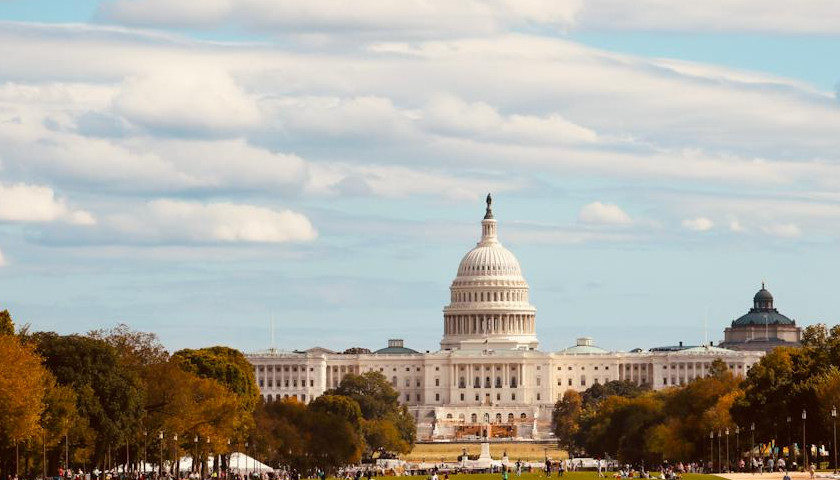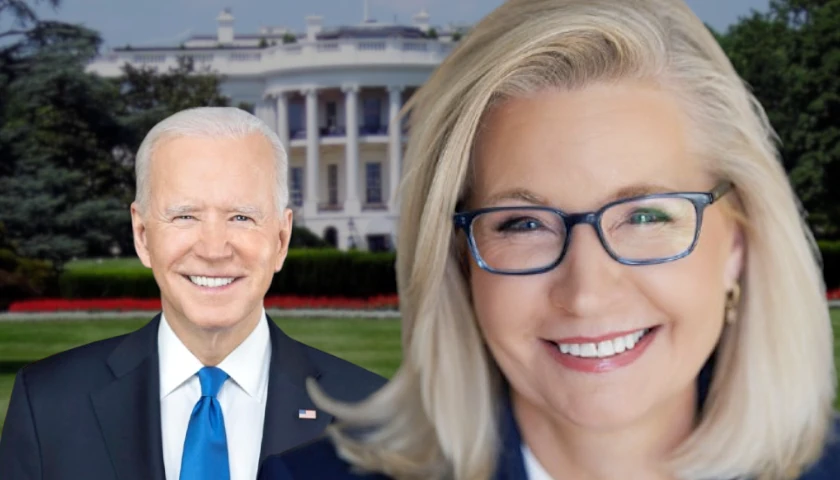by Robert Romano
“Anti-woke economic terrorists have now wiped out $5 trillion in stock value.”
That was a headline from Afru.com bemoaning the sideways performance of Environmental, Social and Governance (ESG) funds the past year or so, accusing anyone opposed to ESG with inflicting “economic terrorism” and “erod[ing] financial portfolios of color” as “global investments in ethical companies have nosedived by nearly $5 trillion over the past two years.”
One of my favorite parts about my job is reading hysterical headlines and pieces, and offering responses, so here goes.
Even if Republicans were economic terrorists—they aren’t, but even if they were—they’re not very good at it.
From the Afru article, it lays the blame singularly at Republican lawmakers’ feet and a few anti-woke voices on social media such as Tim Pool, Joe Rogan and Elon Musk.
Since social media activism, while very important at educating and raising awareness of ESG and its impacts on the economy and our culture, clearly cannot be a driving force for global financial gyrations, here’s the very brief summary Afru.com offers:
“Let’s be clear about where to put the blame. Conservative lawmakers, driven by an irrational culture of anti-woke hysteria, have actively taken measures to resist the incorporation of ESG principles into business and investing. This opposition has manifested in legislative efforts across multiple states, from Florida to Utah, where lawmakers are pushing back against the injection of ethics into the financial sector.”
So, in terms of policy (which I’ll argue in a moment is critical to the approach that must be taken), the authors singularly lay the sideways performance at the feet of red states’ pension funds reportedly divesting from ESG funds.
However, Afru.com needn’t have fretted as it is unclear to what extent red states’ government pension funds in states like Utah and Florida were really ever the driving force behind investment in this category. The states that were actively reporting as participating in ESG are California, New York, Colorado, Connecticut, Maine, Maryland and Oregon, according to the National Association of State Retirement Administrators. Are those states withdrawing from ESG funds? That’d be news, but I somehow missed that headline.
As for the red states blocking investments, that’s certainly important, but to the extent they were never the driving force behind such investments to begin with, it would be a lot like New York Yankees fans boycotting New York Mets paraphernalia they were never going to buy in the first place.
Further, in terms of investment, Morningstar’s sustainable assets index was at $299 billion for Q3 2023, about where it was in Q1 2021. It’s down 17 percent from its peak at the end of 2021. The S&P 500 was down 10 percent from its peak at the end of 2021 through the end of Q3 2023 (it’s recovered some in the past month). So, while there are differences in performance that are certainly worth considering from an investment standpoint, the hysterical point of view expressed by the Afru.com authors doesn’t match the reality, especially when one considers the policies that have and have not been enacted.
Former President Trump (whom I personally support) was convinced his Labor Department “banned” ESG in 2020 but they hadn’t as the rule in question only covered one-third of retirement investments and still allowed ESG. I covered this exhaustively in February in a piece, “Trump vows ban on $8.4 trillion ESG juggernaut that is violating federal antitrust laws by halting expansion of U.S. energy production and violating Title VII of Civil Rights Act with racial, gender hiring quotas.”
In the above piece, I suggested a more comprehensive approach be taken in the next administration, looking at tax-deferred savings in Individual Retirement Accounts (IRAs) but also Title VII of the Civil Rights Act violations and antitrust considerations. I wrote all of that down because I actually have somewhat low confidence that the next Republican administration, regardless of the candidate, will be able (or willing) to do much. Why?
For example, provisions in two upcoming appropriations bills would if enacted defund Labor Department regulations allowing employer-based retirement investments into Environmental, Social and Governance (ESG) funds, prohibit federal employee retirement investments by the $800 billion Thrift Savings Plan into ESG funds and would defund implementation of the Securities and Exchange Commission’s Climate Disclosure Rule.
The two bills are the House Labor and Health and Human Services appropriations bill, or H.R. 5894 and the House Financial Services appropriations bill, or H.R. 4664.
Anecdotally, having examined legislation for 15 years, in terms of defunding harmful regulations, the bills that House Republicans have come up with this year are the best I’ve ever seen. They gut large chunks of the administrative state.
Unfortunately, they are apparently still not good enough for some House members, and so are still languishing on the House floor and might not pass. They may yet, but there is very little incentive for House Speaker Mike Johnson (R-La.) to bring spending bills to the floor only to be shot down by members.
Add to the mix that Republicans have also eliminated the possibility of an omnibus bill (a combination of appropriations bills) this year that very well could have via a horse trading process possibly included the provisions I’m highlighting, and so we are headed almost certainly for another continuing resolution that will guaranteed if it’s a continuing resolution contain none of them.
In other words, Republicans in Washington, D.C. have not enacted a single policy, law or regulation that would have much of an impact on this. Even if one wishes to point to the 2020 Trump Labor regulation that I believe is inadequate because ERISA is an inadequate vehicle to address this issue because it only impacts one-third of the retirement savings market that re-implemented the “all things being equal” test, it has already been rescinded and replaced by President Joe Biden, never taking effect.
At this point, Republicans appear to be relying on a few state Attorneys General and think tanks to litigate against ESG in federal courts on antitrust and Civil Rights Act grounds, which is an important feature of an overall strategy, but which might not ultimately wrap up for about a decade or so.
In the meantime, the current sideways markets will eventually recover as the strong dollar turns into a weaker dollar and the Federal Reserve begins increasing liquidity by lowering interest rates, I’d say within a year or so, and the current capital being sidelined will be put right back into play because Wall Street actually doesn’t have a preference, as long as the investments ultimately go up.
Perhaps it keeps troops organized and on the field and courageous to believe things that demonstrably aren’t true.
Obviously, my focus is on policy because I believe government incentives and subsidies have a lot to do with how ESG seems to have such a disproportionate impact in our economy and culture. And on the policy front, so far, I am very pessimistic about the prospects of passage of a single anti-ESG measure on the national level any time soon.
The current economic slowdown was an opportunity to stick a thousand knives in this monster while it was on its back. But Afru.com need not worry too much, the policies I am outlining do not appear to be in any danger of passing any time soon.
Instead, the SEC’s climate disclosure rule, Biden’s Labor Department pro-ESG rule and investments by the Thrift Savings Plan into ESG continue unabated, soon markets will recover and activists and lawmakers will still be complaining about carbon energy rationing, carbon and social credit scores and woke movies and entertainment.
I’d love to be wrong about all of this, but I don’t think the invisible hand of the markets will be enough to stop this. I hope it is, but Congress’ job, assuming members wish to address this in any comprehensive manner whatsoever, is to help that along. But the truth is, Republicans are not much further along than they were about two or three years ago. Markets are sideways now, but will recover and reconstitute themselves very soon, and the question will rightly revert back to which policies, if any, need to be implemented. We’ll see.
– – –
Robert Romano is the Vice President of Public Policy at Americans for Limited Government.








